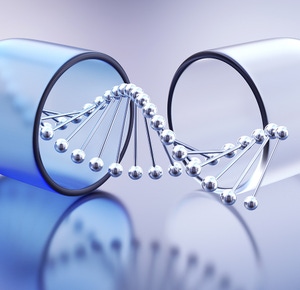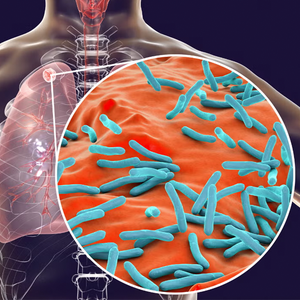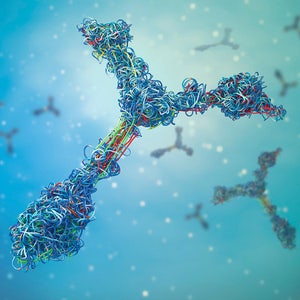About Mucopolysaccharidoses (MPS)
Mucopolysaccharidoses, or MPS disorders, are caused by a deficiency in one of eleven unique lysosomal enzymes (Neufeld & Muenzer, 2014). Each enzyme deficiency affects the breakdown of large long-chain sugars called mucopolysaccharides or glycosaminoglycans, “GAGs” for short. Due to accumulation of GAGs in the lysosomes of cells, these disorders are included in a larger group of disorders known as lysosomal storage diseases or LSDs.
The MPS disorders include MPS I (Hurler, Scheie), MPS II (Hunter), MPS III (four subtypes: San Filippo A, B, C, or D), MPS IVA (Morquio A), MPS IVB (Morquio B), MPS VI (Maroteaux-Lamy), MPS VII (Sly), and MPS IX (hyaluronidase deficiency). Many of the signs and symptoms of MPS are very similar between types as the MPS disorders share a common pathophysiological mechanism, the accumulation of un-degraded GAGs in the lysosomes. Symptoms of MPS may include (Lehman, et al., 2011) (Clarke, et al., 2018): skeletal dysplasia, coarse facial features, pulmonary and cardiac symptoms, corneal clouding, hearing loss, joint stiffness or laxity, and dentition abnormalities.
About MPS VII
MPS VII results from an enzyme deficiency in β-glucuronidase (GUS). MPS VII is an autosomal recessive disorder: a copy of a defective GUSB gene that encodes for the GUS enzyme is inherited from each parent. Due to the defect in GUS, GAGs accumulate in the cells leading to multi-systemic disease.
Symptoms of MPS VII may include enlarged spleen and liver, joint stiffness, short stature, and heart/ lung complications. MPS VII may present with a characteristic facial appearance and can lead to progressive skeletal dysplasia. MPS VII patients also can have presentation of cataracts, corneal clouding, hearing loss, developmental delay, and intellectual disability. MPS VII can present at birth with non-immune hydrops fetalis (NIHF) (Montaño, et al., 2016)(Gimovsky, et al. 2014). MPS VII is the most common MPS associated with LSD-based NIHF (Vianey-Saban, et al., 2016).
Incidence
All MPS disorders have an estimated combined incidence of 1 in 25,000 (Tomatsu, et al., 2013) (Khan, et al., 2017). MPS VII is a rare disorder with a variable frequency of disease depending on geographical origin and is likely under-recognized (Montaño, et al., 2016).
For providers from New York State, please see additional ordering information for New York State.
New York testing
New York State Public Health Law and Regulations require samples that are collected from patients within New York State be tested by a clinical laboratory that holds proper New York licensing. Due to the rarity of many genetic conditions, laboratories may not hold proper licensing for all testing options available. However, there can be justification for requesting laboratory testing from a facility that does not hold the specific disease testing permits.
In these instances, a Non-Permitted Laboratory Test Request can be submitted to the New York State Health Department for approval. Approval must be granted prior to submitting and testing a sample collected in New York to the non-permitted laboratory. Approval or rejection will be sent in writing to the submitting physician for each request submitted to the department. If the request is rejected, the reason for rejection will be included in the response.
For Non-approved tests
For patients residing in New York State, the following form will need to be completed, submitted, and approved by New York State Department of Health prior to submitting a specimen for testing. Once approved, you may submit the patient specimen, test requisition form, and New York approval letter to initiate testing.
Eligibility
Symptoms consistent with MPS VII or another MPS disorder.
Program
Ultragenyx is partnering with Revvity Omics to offer sponsored, no-charge testing for MPS. This sponsored program uses dried blood spot punches to measure enzyme deficiency from an MPS enzyme panel and in cases of β-glucuronidase deficiency, GUSB gene sequencing is performed.
Patients suspected of having a MPS disorder
- MPS enzyme panel. If β-glucuronidase is deficient, proceed to:
- GUSB DNA sequencing analysis (with copy number variant analysis if needed)
MPS panel
| MPS | Enzyme Panel |
|---|---|
| MPS I | α-L-iduronidase |
| MPS II | iduronate-2-sulfatase |
| MPS IIIB | α-N-acetylglucosaminidase |
| MPS IVA | N-acetyl galactosamine-6-sulfatase |
| MPS IVB | β-galactosidase |
| MPS VI | N-acetylglucosamine-4-sulfatase |
| MPSVII (Sly Syndrome) | β-glucuronidase |
Methodology
Flow Injection Tandem Mass Spectrometry (FIA/MS/MS)
GUSB gene sequencing methodology: performed via NGS analysis if β-glucuronidase is deficient. All coding exons and immediate flanking intronic regions of the gene are sequenced. Copy number variation (CNV) is assessed using Biodiscovery’s NxClincal software and is designed to detect deletions and duplications.
References
1. Clarke, L., Ellaway, C., Foster, H. C., Giugliani, R., Goizet, C., Goring, S., . . . Wijburg, F. (2018). Understanding the Early Presentation of Mucopolysaccharidoses Disorders: Results of a Systematic Literature Review and Physician Survey. Journal of Inborn Errors of Metabolism, 6, 1-12. doi:10.1177/2326409818800346
2. Gimovsky, A. C., Luzi, P., & Berghella, V. (2015, March). Lysosomal storage disease as an etiology of nonimmune hydrops. American Journal of Obstetrics and Gynecology, 212(3), 281-290. doi:10.1016/j.ajog.2014.10.007
3. Khan, S. A., Peracha, H., Ballhausen, D., Wiesbauer, A., Rohrbach, M., Gautschi, M., . . . Tomatsu, S. (2017). Epidemiology of mucopolysaccharidoses. Molecular Genetics and Metabolism, 121, 227-240. doi:10.1016/j.ymgme.2017.05.016
4. Lehman, T. J., Miller, N., Norquist , B., Underhill, L., & Keutzer, J. (2011, Dec). Diagnosis of the mucopolysaccharidoses. Rheumatology supplement, 50(Suppl_5), v41-v48. doi:10.1093/rheumatology/ker390
5. Montaño , A. M., Lock-Hock, N., Steiner, R. D., Graham, B. H., Szlago, M., Greenstein, R., . . . Sly, W. S. (2016, June). Clinical course of sly syndrome (mucopolysaccharidosis type VII). Journal of Medical Genetics, 53(6), 403-418. doi:10.1136/jmedgenet-2015-103322
6. Neufeld, E. F., & Muenzer, J. (2014). “The Mucopolysaccharidoses.” The Online Metabolic and Molecular Bases of Inherited Disease. (D. Valle, A. L. Beaudet, B. Vogelstein, K. W. Kinzler, S. E. Antonarakis , A. Ballabio, . . . G. Mitchell, Eds.) New York, NY: McGraw Hill. Retrieved from ommbid.mhmedical.com/content.aspx?bookid=971§ionid=62642135
7. Tomatsu, S., Fujii, T., Fukushi, M., Oguma, T., Shimada, T., Maeda, M., . . . Orii, T. (2013, Sep-Oct). Newborn screening and diagnosis of mucopolysaccharidoses. 110(1-2), 42-53. doi:10.1016/j.ymgme.2013.06.007
8. Vianey-Saban, C., Acquaviva, C., Cheillan, D., Collardeau-Frachon, S., Guibaud, L., Pagan, C., . . . Froissart, R. (2016, July 8). Antenatal manifestations of inborn errors of metabolism: biological diagnosis. Journal of Inherited Metabolic Disorders, 39, 611–624. doi.org/10.1007/s10545-016-9947-8
- What are the acceptable specimen types for MPS sequencing panel testing?
- How does one request for a DBS pack?
- What is the process to collect a DBS specimen?
- What are the shipping details?
This testing service has not been cleared or approved by the U.S. Food and Drug Administration. Testing services may not be licensed in accordance with the laws in all countries. The availability of specific test offerings is dependent upon laboratory location. The content on this page is provided for informational purposes only, not as medical advice. It is not intended to substitute the consultation, diagnosis, and/or treatment provided by a qualified licensed physician or other medical professionals.
Revisions:
MRCP-UX003-00192 03/2020
MRCP-UX003-00242 03/2020
MRCP-UX003-00243 03/2020





































